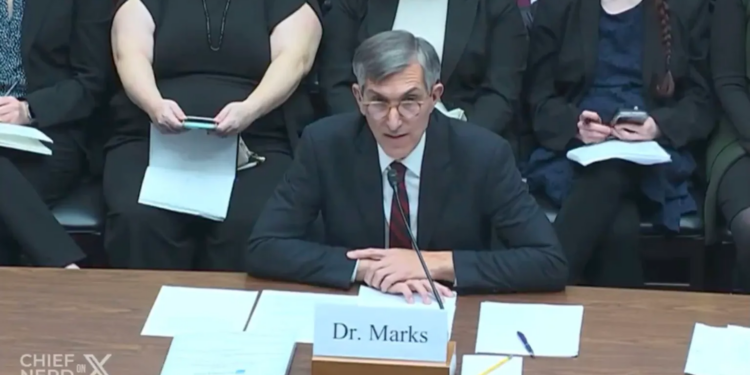The recent hearing held by the Select Subcommittee on the Coronavirus Pandemic titled “Assessing America's Vaccine Safety Systems, Part One” has shed light on the expedited approval process of the Pfizer-BioNTech COVID-19 vaccine. The Director of the FDA's Center for Biologics Evaluation and Research, Dr. Peter Marks, faced intense questioning during the hearing, which was overseen by Chairman Rep. Brad Wenstrup.
One of the key points of discussion during the hearing was the timeline for Pfizer's vaccine approval. Rep. James Comer questioned Dr. Marks about the original deadline for approval, which was set for January 18, 2022. However, due to the alleged sharp increase in COVID-19 deaths, there was a push for faster approval. Dr. Marks admitted that the timeline was expedited in response to the public health crisis.
Despite reservations expressed by Dr. Philip Krause, former Deputy Director of the Office of Vaccines Research and Review, and Dr. Marion Gruber, director of the FDA's vaccines office, regarding the rushed timeline, Dr. Marks claimed that his decision was free from external influences. He stated that his primary concern was addressing the urgent need for a vaccine during the pandemic.
The hearing also revealed that Dr. Krause and Dr. Gruber were relieved from their roles in the vaccine's approval process after expressing hesitation about the expedited timeline. This raised concerns about potential conflicts of interest and external pressures influencing the approval process.
Another important discussion point during the hearing was the association between the vaccine and myocarditis, particularly in young men. Dr. Marks confirmed his awareness of this safety concern and acknowledged discussions about it. Despite these concerns, the vaccine was approved on August 23, 2021, just one day before the military mandate for vaccination was issued.
The timing of the vaccine's approval and the military mandate raised eyebrows during the hearing. Rep. Comer pointed out that the vaccine was approved on August 23rd, while the military mandate was issued on the 24th. This raised questions about whether the approval was expedited to meet the mandate's timelines.
Overall, the hearing raised important questions about the approval process for the Pfizer-BioNTech COVID-19 vaccine. It highlighted concerns about the expedited timeline, potential conflicts of interest, and the influence of external pressures. The discussion around the association between the vaccine and myocarditis also emphasized the importance of thorough safety assessments.
As the COVID-19 pandemic continues to evolve, it is crucial to ensure transparency and accountability in the vaccine approval process. The hearing served as a reminder of the need for robust systems to assess vaccine safety and address any potential risks.







